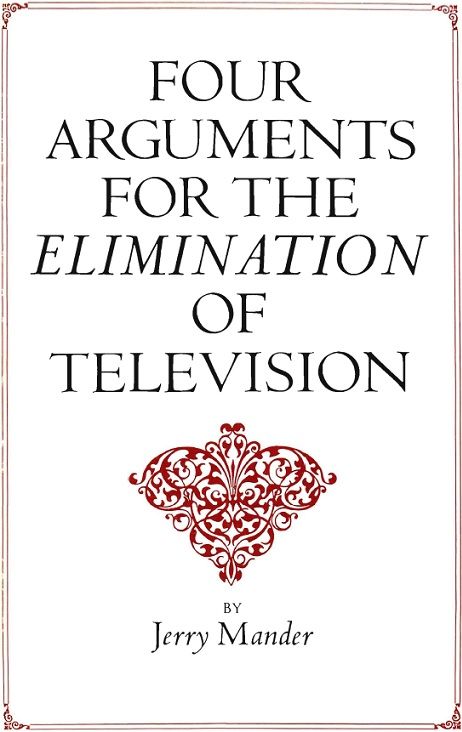Television has become an integral part of our lives, shaping our thoughts, beliefs, and behaviors. It has infiltrated our homes, our schools, and even our workplaces. But have we ever stopped to consider the impact that television has on society? In his thought-provoking book, “Four Arguments for the Elimination of Television,” Jerry Mander presents a compelling case against the continued existence of this ubiquitous medium.
Mander’s first argument centers around the idea that television is inherently addictive. He argues that the medium’s constant stimulation and instant gratification create a dependency that is difficult to break. This addiction, he claims, leads to a passive and disengaged society, where individuals are more interested in consuming entertainment than actively participating in their communities. Mander’s argument is supported by research that shows how excessive television viewing can lead to a decrease in social interaction and a decline in critical thinking skills.
The second argument put forth by Mander is that television distorts our perception of reality. He asserts that the medium’s reliance on advertising and commercial interests shapes the content we consume, leading to a skewed view of the world. Mander argues that television promotes consumerism and materialism, perpetuating a culture of greed and dissatisfaction. He suggests that by eliminating television, we can regain control over our own perceptions and develop a more authentic understanding of the world around us.
Mander’s third argument focuses on the environmental impact of television. He highlights the immense amount of resources required to produce and operate televisions, from the extraction of raw materials to the generation of electricity. Mander argues that this excessive consumption of resources is unsustainable and contributes to environmental degradation. He suggests that by eliminating television, we can reduce our ecological footprint and work towards a more sustainable future.
The final argument presented by Mander is perhaps the most controversial: the idea that television is a tool of social control. He argues that the medium is used by those in power to manipulate and shape public opinion. Mander points to the consolidation of media ownership and the homogenization of content as evidence of this control. He suggests that by eliminating television, we can reclaim our autonomy and create a more democratic society.
While Mander’s arguments are thought-provoking, it is important to consider the counterarguments as well. Critics argue that television can also be a source of education, entertainment, and connection. They point to the positive impact of educational programming, the ability to access news and information from around the world, and the sense of community that can be fostered through shared viewing experiences. Additionally, they argue that it is not the medium itself that is the problem, but rather how it is used and consumed.
In conclusion, “Four Arguments for the Elimination of Television” presents a compelling case against the continued existence of television. Mander’s arguments highlight the addictive nature of the medium, its distortion of reality, its environmental impact, and its potential for social control. While there are valid counterarguments to consider, Mander’s book serves as a reminder to critically examine the role of television in our lives and the impact it has on society. Whether or not one agrees with his conclusions, it is clear that television’s influence is far-reaching and warrants further exploration.

